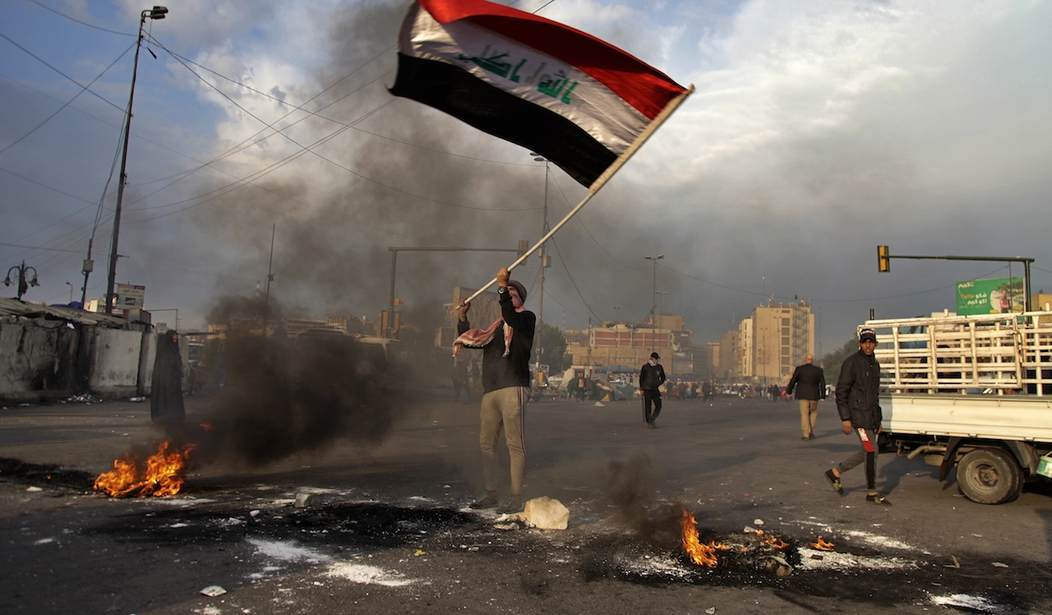In America, when people are dissatisfied with election results, they write angry social media posts and perhaps challenge the outcome in court.
In Iraq, when the election results are unsatisfactory, they try to blow up the prime minister.
That’s what happened on Saturday, in the form of a drone strike on Iraqi Prime Minister Mustafa al-Kadhimi’s residence by what appear to be unhappy Shiite Islamist militants who were protesting parliamentary election results.
Al-Kadhimi was unhurt, but the attack punctuated the fact that the radical Islamist faction, Fatah, would not have much of a say in the new government being formed.
That job will fall to radical cleric Moqtada al-Sadr, whose forces battled U.S. Marines in Falluja and elsewhere in Iraq for a decade. The Sadrist faction won the most seats in parliament in the October 10 election at Fatah’s expense. The Iranian-backed Fatah lost two-thirds of its seats, despite getting the most votes.
Related: More Than 250 Iranians Executed in 2020, Including Nine Women And Four Children
Al-Sadr was a former darling of the Iranian clerics but had a falling out with them after they wanted him to be little more than a puppet for their interests. He is now firmly in the nationalist’s camp and will help in the formation of a new government—if the election results are ever certified.
Iraq’s election commission has yet to announce final results for the nationwide elections held almost a month ago as it wades through fraud accusations. The Shiite cleric Muqtada al-Sadr has emerged as the biggest winner, at the expense of Iranian-backed parties that lost seats. Mr. al-Sadr, whose fighters battled American forces during the U.S.-led occupation of Iraq, is viewed as an Iraqi nationalist with an uneasy relationship with Iran.
Political analysts believe those gains were mostly because of a more sophisticated strategy by the Sadrist organization, taking advantage of a new electoral system, which has an increased number of electoral districts. The United Nations, which had observers at the polls, praised the process. The political wings of the militia groups that lost seats claim they were defrauded.
Few are envious of Al-Sadr’s position as leader of the largest party in Parliament. The former U.S. deadly enemy now must balance the interests of Islamists, nationalists, pro-Iranian fanatics, and Sunni Muslims to form some kind of governing majority.
Kitaib Hezbollah, the militia arm of Lebanon’s terrorist group in Iraq, called the attack a false flag operation and al-Kadhimi a “Facebook creature.” Obviously, the terrorists have a PR guy who was educated in the west.
Abu Ali al-Askari, the nom de guerre of one of the leaders of Kitaib Hezbollah, a main Iranian-backed militia, accused Mr. al-Kadhimi of playing the role of a victim and said that no one in Iraq considered the Iraqi leader’s home worth losing a drone over.
“If there is anyone who wants to harm this Facebook creature there are many ways that are less costly and more guaranteed to achieve this,” he said in a posting on his Telegram channel.
While the attack has raised fears of growing instability amid Iraq’s political turmoil, the country’s citizens seemed to generally shrug it off. Later Sunday morning, the start of the Iraqi workweek, Baghdad streets were full of the normal rush-hour traffic jams.
“Instability” is normalcy in Iraq, so it’s not surprising residents reacted as if it was nothing out of the ordinary. It just goes to show that people can get used to anything, if it lasts long enough.










Join the conversation as a VIP Member